 Petzlover
Petzlover Kyi-Leo is originated from United States but Polish Hunting Dog is originated from Poland. Kyi-Leo may grow 36 cm / 14 inches shorter than Polish Hunting Dog. Kyi-Leo may weigh 26 kg / 57 pounds lesser than Polish Hunting Dog. Both Kyi-Leo and Polish Hunting Dog has almost same life span. Kyi-Leo may have less litter size than Polish Hunting Dog. Kyi-Leo requires Moderate Maintenance. But Polish Hunting Dog requires Low Maintenance
Kyi-Leo is originated from United States but Polish Hunting Dog is originated from Poland. Kyi-Leo may grow 36 cm / 14 inches shorter than Polish Hunting Dog. Kyi-Leo may weigh 26 kg / 57 pounds lesser than Polish Hunting Dog. Both Kyi-Leo and Polish Hunting Dog has almost same life span. Kyi-Leo may have less litter size than Polish Hunting Dog. Kyi-Leo requires Moderate Maintenance. But Polish Hunting Dog requires Low Maintenance
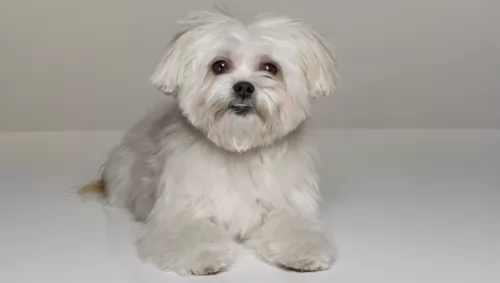 The Kyi-Leo first came about in the 1950s in San Francisco, USA, with the crossing of two dog breeds – the Lhasa Apso and the Maltese.
The Kyi-Leo first came about in the 1950s in San Francisco, USA, with the crossing of two dog breeds – the Lhasa Apso and the Maltese.
Because this is a mixed-breed dog, it isn’t recognized by the American Kennel Club, but it is recognized by some of the other dog associations such as the American Rare Breed Association or ARBA as it is known. Today the dog is looked upon as a designer breed.
 The Polish Hunting Dog originates from Poland and is a purebred scenthound. Hunting with scent hounds goes right back to the 13th century, being highly esteemed by Polish nobility.
The Polish Hunting Dog originates from Poland and is a purebred scenthound. Hunting with scent hounds goes right back to the 13th century, being highly esteemed by Polish nobility.
The famous Polish cynologist, Jozef Pawuslewicz hunted with Polish scent hounds and was part of the development of breeding this dog.
He wrote the first breed standard and the dog was officially registered by the Polish Cynological Association.
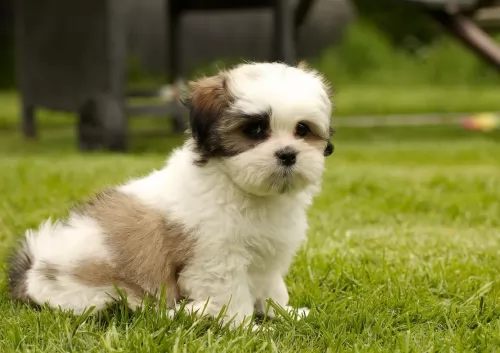 The Kyi-Leo is a small dog standing at 20 – 30cm in height and weighing in the region of 4 – 6kg.
The Kyi-Leo is a small dog standing at 20 – 30cm in height and weighing in the region of 4 – 6kg.
He has a long, silky coat which is essentially black and white or grey/silver and white or even gold and white. He has frail legs which can become injured or broken in vigorous rough and tumble games.
You can certainly describe the Kyi-Leo as a sweet, quiet, non-aggessive playful dog, and for anyone who wants a splendid pet and companion, this dog makes a great family pet and he won’t cost you an arm and a leg to feed either.
He also has an acute sense of hearing and this turns him into an excellent ‘alarm’ watch-dog. It is also a dog, that while he will love to join you on a walk, he isn’t a dog that is going to demand a lot of exercise.
He responds well to his human family, is easy-going and gentle, tending to be cautious around strangers. You can trust him to be an awesome playmate for children. In this instance, it’s the children who should be warned when playing with a dog like this as, because of his fragile build, he could easily be injured by children who haven’t been taught to respect animals.
Even though he is such an amicable pet, it will still be of benefit to you and him to have him trained and socialized. Then he responds well to basic commands such as sit, stay and lie-down.
Dogs who spend time with their family, pick up on the ‘culture’ of the family and they learn how to behave. Dogs who are left on their own and never socialized can become nervous and aggressive towards people as they never got to learn how to behave – they weren’t socialized.
 The Polish Hunting Dog is a large, strong dog standing between 50 – 66cm in height and weighing between 20 to 32kg. He is very similar to a Doberman Pinscher or a Rottweiler in looks.
The Polish Hunting Dog is a large, strong dog standing between 50 – 66cm in height and weighing between 20 to 32kg. He is very similar to a Doberman Pinscher or a Rottweiler in looks.
The dog’s coat is short and the color is usually black and tan. He is a deep chested dog with a well-proportioned head, with longish muzzle and floppy ears. The tail is long.
Well balanced and gentle, the Polish Hound is a courageous, intelligent dog, easy to train and socialize. It isn’t an aggressive dog but is wary of strangers.
He loves playing with children and is loving and kind to them. He never tires of their games. He is alert and protective and makes a great watchdog.
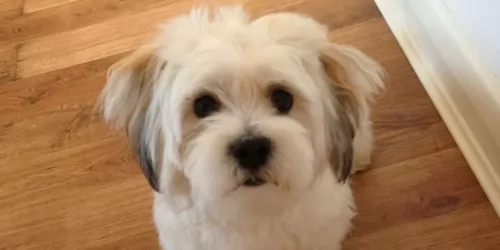 The Kyi-Leo is everything you want in a family companion – active, playful, loving, gentle, happy and balanced.
The Kyi-Leo is everything you want in a family companion – active, playful, loving, gentle, happy and balanced.
He loves his human family but tends to be a little bit wary around strangers, gradually warming to them.
He may be small, but he is robust and alert, and he is also capable of making you a good watchdog.
The Kyi-Leo is an all-round great little pet to have.
 Your Polish Hunting Dog is a great choice of dog as a family pet. Used as a hunting dog he will be thrilled if he lands up with a family who are active and outdoorsy types.
Your Polish Hunting Dog is a great choice of dog as a family pet. Used as a hunting dog he will be thrilled if he lands up with a family who are active and outdoorsy types.
You can always count him in when it comes to going for walks, hiking, cycling or running next to you when you go horse-riding.
The Polish Hunting dog is a stable, gentle dog and he has a whole lot of other wonderful attributes to his name. He is loving, loyal, courageous, friendly, social and companionable. And he's good looking. What a great pet this low maintenance dog makes.
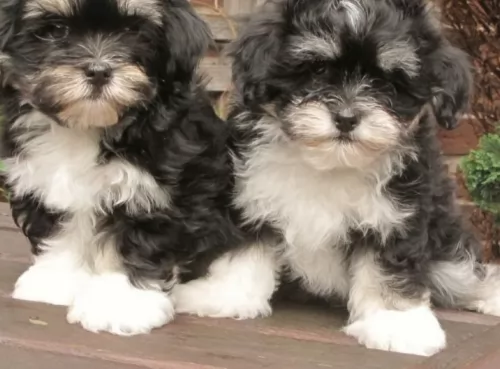 Your Kyi-Leo is such a feisty, robust little dog who is not likely to cost you much in terms of health care. With his frail legs, it is a good thing to know that you need to be careful with him in terms of back-and joint problems.
Your Kyi-Leo is such a feisty, robust little dog who is not likely to cost you much in terms of health care. With his frail legs, it is a good thing to know that you need to be careful with him in terms of back-and joint problems.
There are actually knee joint issues which are fairly common in small dogs, one of which is patellar luxation.
This is where the kneecap pops out of the thighbone, causing the dog to skip or hop. Some joint issues are genetic and may require surgery. Make sure to keep your pet’s weight under control to remove additional stress on the joints.
This is another dog illness you want to be careful with. Acute pancreatitis -inflammation - is when the condition comes on suddenly while chronic pancreatitis is when pancreatitis occurs over a period of time.
With acute pancreatitis in dogs you’ll see symptoms such as vomiting, abdominal pain, tremors and reluctance to eat. Pancreatitis can be brought on by too much fat, especially rancid fat, some anti-biotics, a low protein diet or a sickness such as diabetes.
If you suspect pancreatitis in your dog, get him as quickly as possible to the vet.
 They are generally a robust breed and can easily reach up to 14 years of age with good care. There are always some common dog illnesses that you can benefit from knowing about because then you can get your pet to the vet if he appears to be under the weather.
They are generally a robust breed and can easily reach up to 14 years of age with good care. There are always some common dog illnesses that you can benefit from knowing about because then you can get your pet to the vet if he appears to be under the weather.
Active dogs are always going to be exposed to parasites, whether they be ticks, fleas or worms. Right from word go, puppies are treated for worms, but it is important to treat your dog regularly for parasites. Speak to your vet about the best products.
Heatstroke is always a risk for dogs even in areas where the weather isn’t particularly hot. People think on overcast days they can leave their dog in the car while they go in to the shops. A temperature that seems mild to a human can be like an oven to a dog. Excess heat is deadly to a dog. Signs of heatstroke include drooling, panting, anxiety, collapsing and then death.
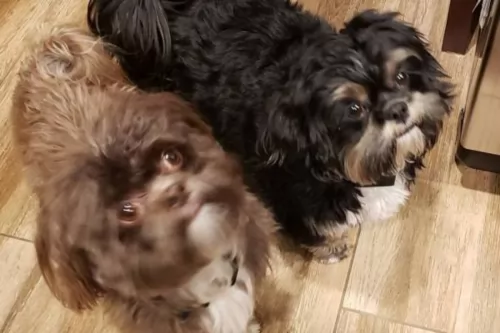 The Kyi-Leo doesn’t require vigorous exercising. One walk a day will keep them happy. There are pet owners who believe dogs can be permanently outside dogs where they can do their own exercise.
The Kyi-Leo doesn’t require vigorous exercising. One walk a day will keep them happy. There are pet owners who believe dogs can be permanently outside dogs where they can do their own exercise.
Everybody who knows dogs, knows they are social creatures who will simply lie at your backdoor just waiting for some response from their beloved human family. Every dog, regardless of breed or size, needs exercise and interaction with their humans every day.
Dogs left alone in the yard day after day are loney, frustrated and bored, and when they start digging or barking, irresponsible owners will ill treat them. These kind of people should never own a dog.
The Kyi-Leo has a sensitive stomach so he’ll need good quality food to avoid digestive problems. Ideally home-cooked food such as softly boiled chicken, brown rice and raw or cooked vegetables added into top quality kibble is the preferred diet.
Fresh, cool water needs to be constantly available.
Brush the long, silky coat at least twice a week to ensure it remains free of knotting. Brushing keeps the coat shiny too.
As a long eared dog, ears should be checked and cleaned regularly too. Air doesn’t reach the inside of their ears and the warm dampness in the ears are a breeding place for infection.
Nails should also be trimmed when they become long because left uncut they can hook onto things causing injury ad pain.
Small dogs are more prone to tartar formation and loss of teeth. You’ll notice that something isn’t right because your lively little dog will be lethargic, he may not want to eat his food and his face may be swollen. When you suspect dental problems, get him to the vet.
 The Polish Hunting Dog has always had an acute sense of smell, and with his long legs he has always been able to track his prey for many miles. This hunting has made him a dog that wants lots exercise and activities.
The Polish Hunting Dog has always had an acute sense of smell, and with his long legs he has always been able to track his prey for many miles. This hunting has made him a dog that wants lots exercise and activities.
As a pet, this dog will require a lot of exercise, being better suited to active, outdoor type of owners. He is therefore better suited to life in the country and large open spaces as opposed to living in the city.
Apart from brushing your pets coat twice a week, check him over for ticks if you want to avoid the spread of tick-borne diseases.
Check his ears, inside and out. Check inside his mouth for bad teeth. This is because your dog can’t tell you if he has pain, and toothache can be terrible for your pet and bad teeth can affect other body organs such as the heart and the kidneys.
Make sure your pets nails are trimmed.
Make sure your pet receives excellent food. If you’re going to be feeding your dog commercially manufactured dog food, make sure it is the best quality ones. Some of the other foods have ingredients in them which can cause your dog to get sick.
Try and give your dog some wholesome, home-made food. Boiled chicken, brown rice or pasta, carrots, sweet potato and spinach chopped up and added to the kibble will have your pet wagging his tail with delight. It will also be to his benefit to get some raw meat in from time to time.
Never leave your pet without a constant supply of fresh, cool water.